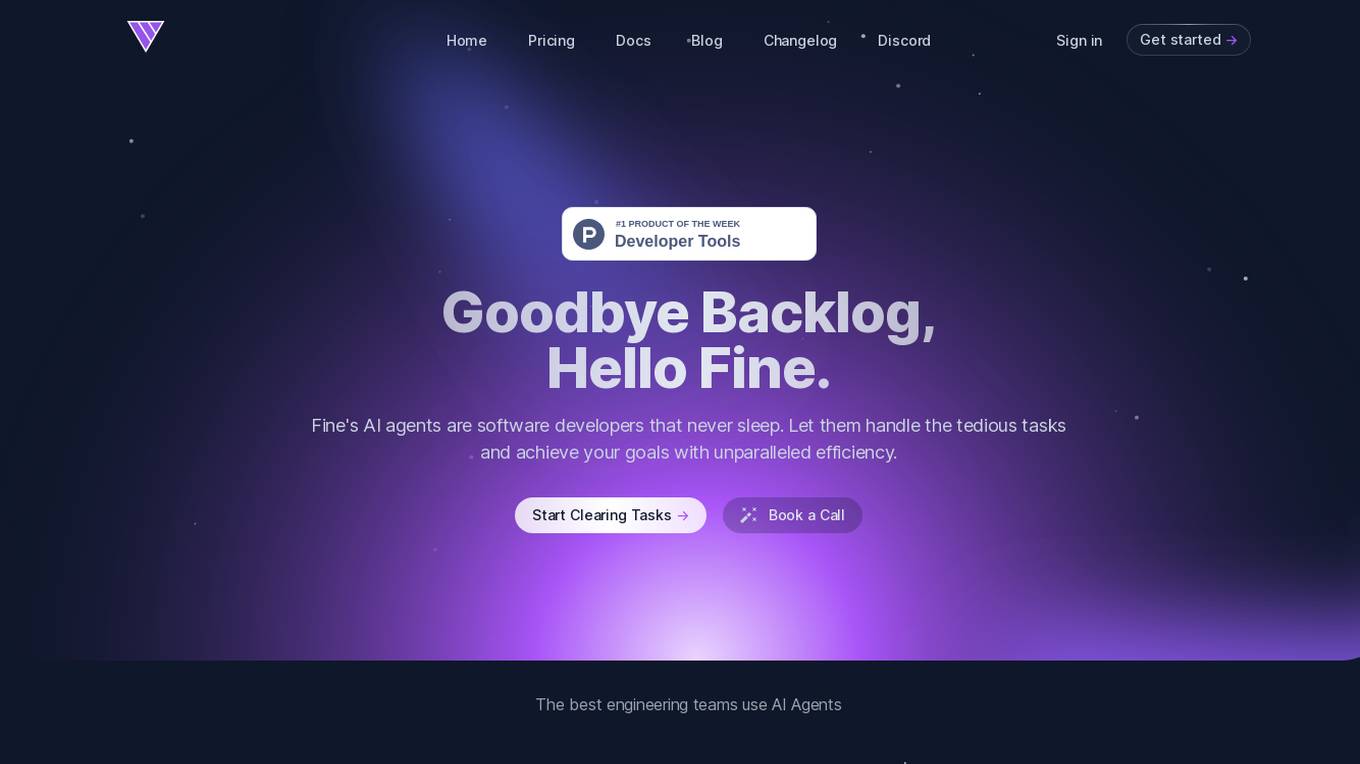Best AI tools for< Tahmin >
2 - AI tool Sites

Yapay Zeka Muhasebe
Yapay Zeka Muhasebe, muhasebe süreçlerini otomatikleştirmek ve verimliliği artırmak için yapay zeka kullanan bir yazılımdır. İşletmelerin finansal verilerini analiz ederek, anormallikleri tespit ederek ve tahminlerde bulunarak muhasebecilere zaman kazandırır ve maliyetleri düşürür.
site
: 0

Fine
Fine is an AI-powered software development tool that automates mundane and complex tasks, allowing developers to focus on driving innovation. Its AI agents integrate seamlessly into your team and toolset, transforming your development workflow by automating tasks such as transforming Jira tickets into pull requests, streamlining code reviews, and simplifying migrations.
site
: 15.2k
0 - Open Source AI Tools
No tools available
0 - OpenAI Gpts
No tools available